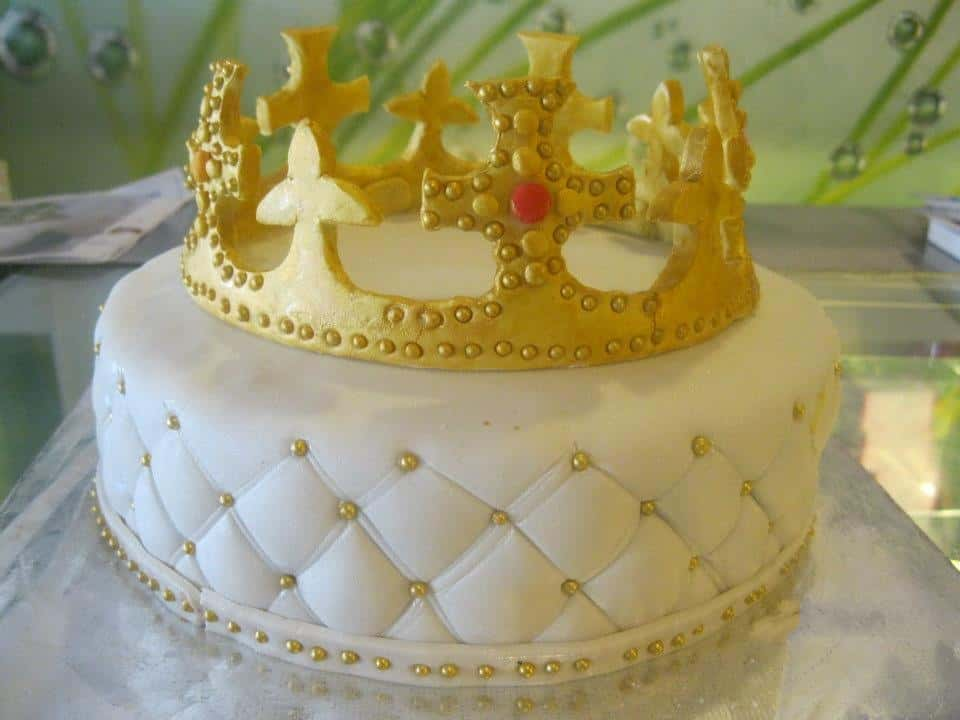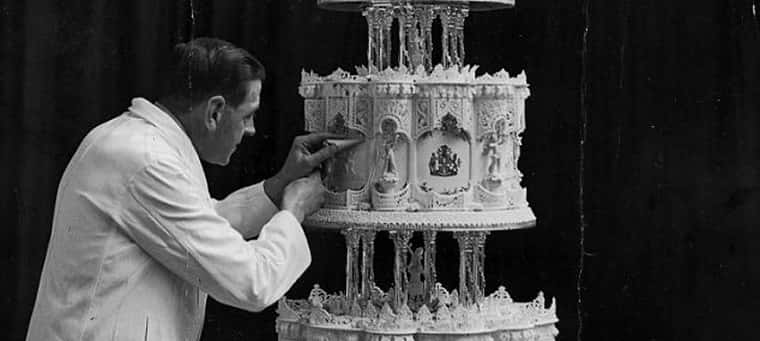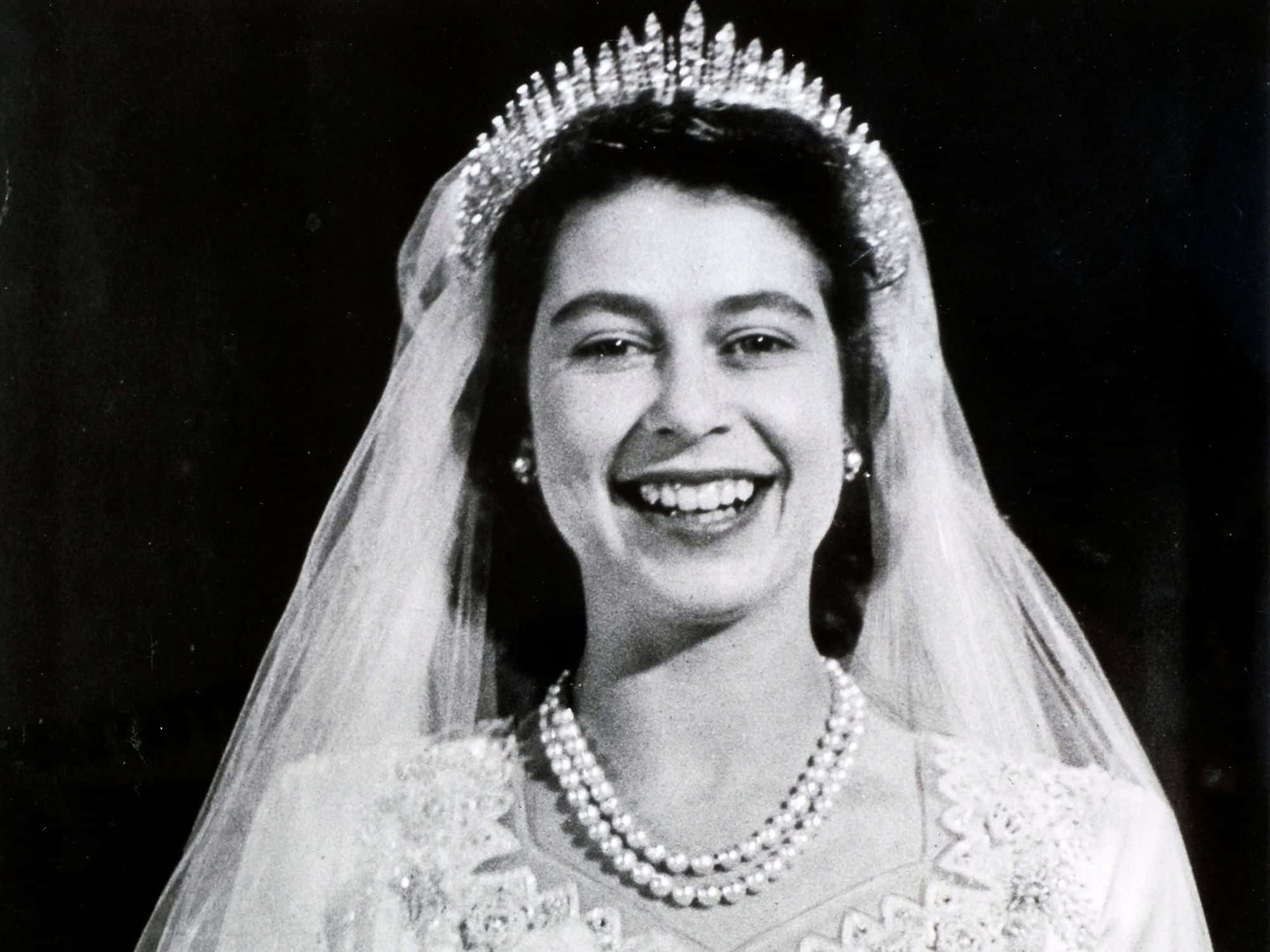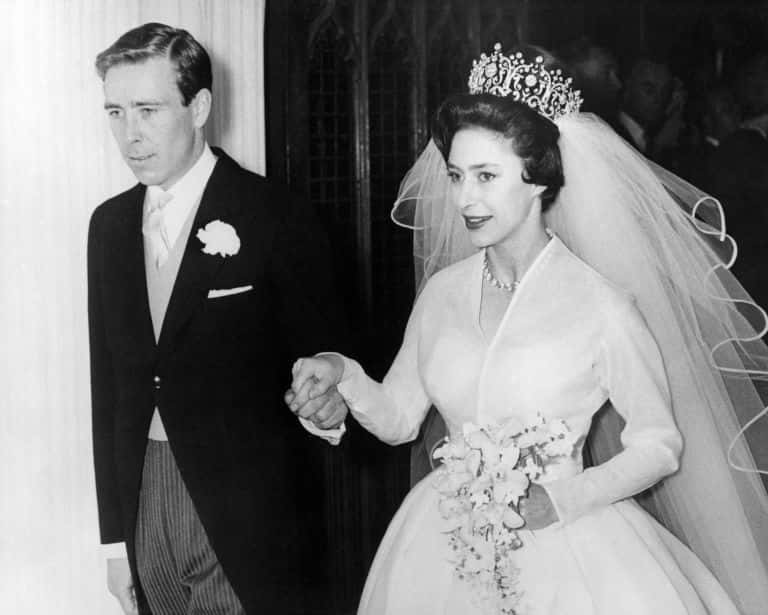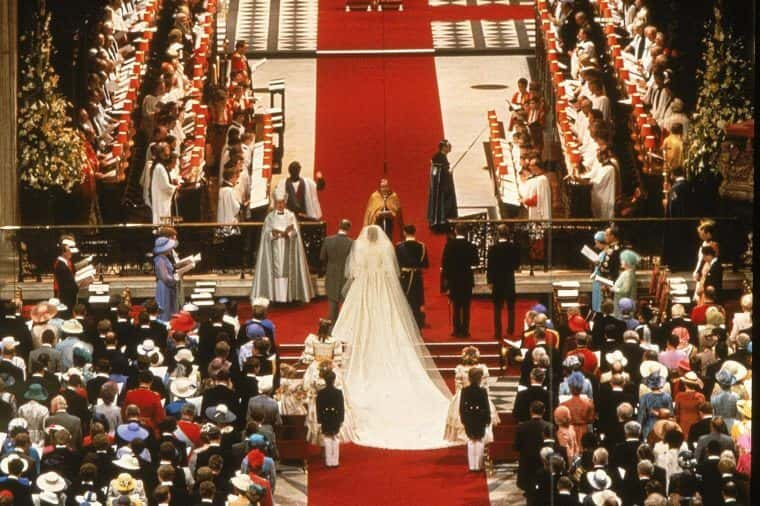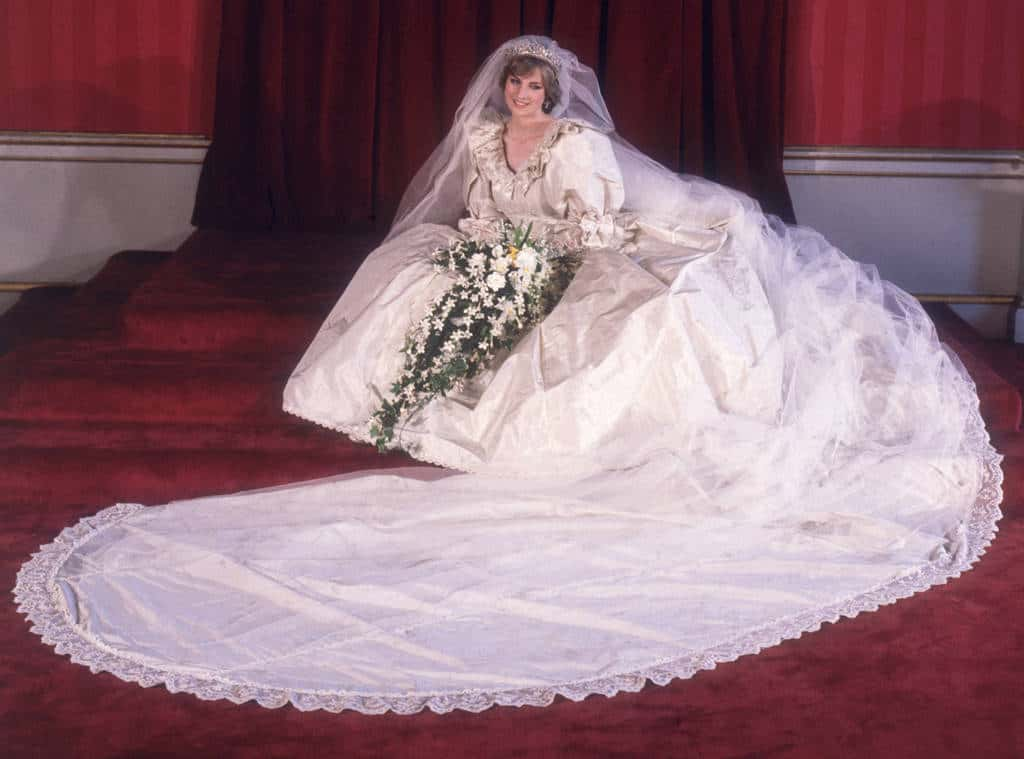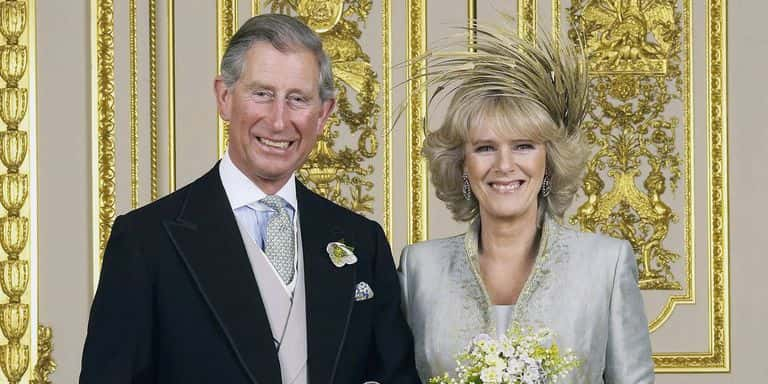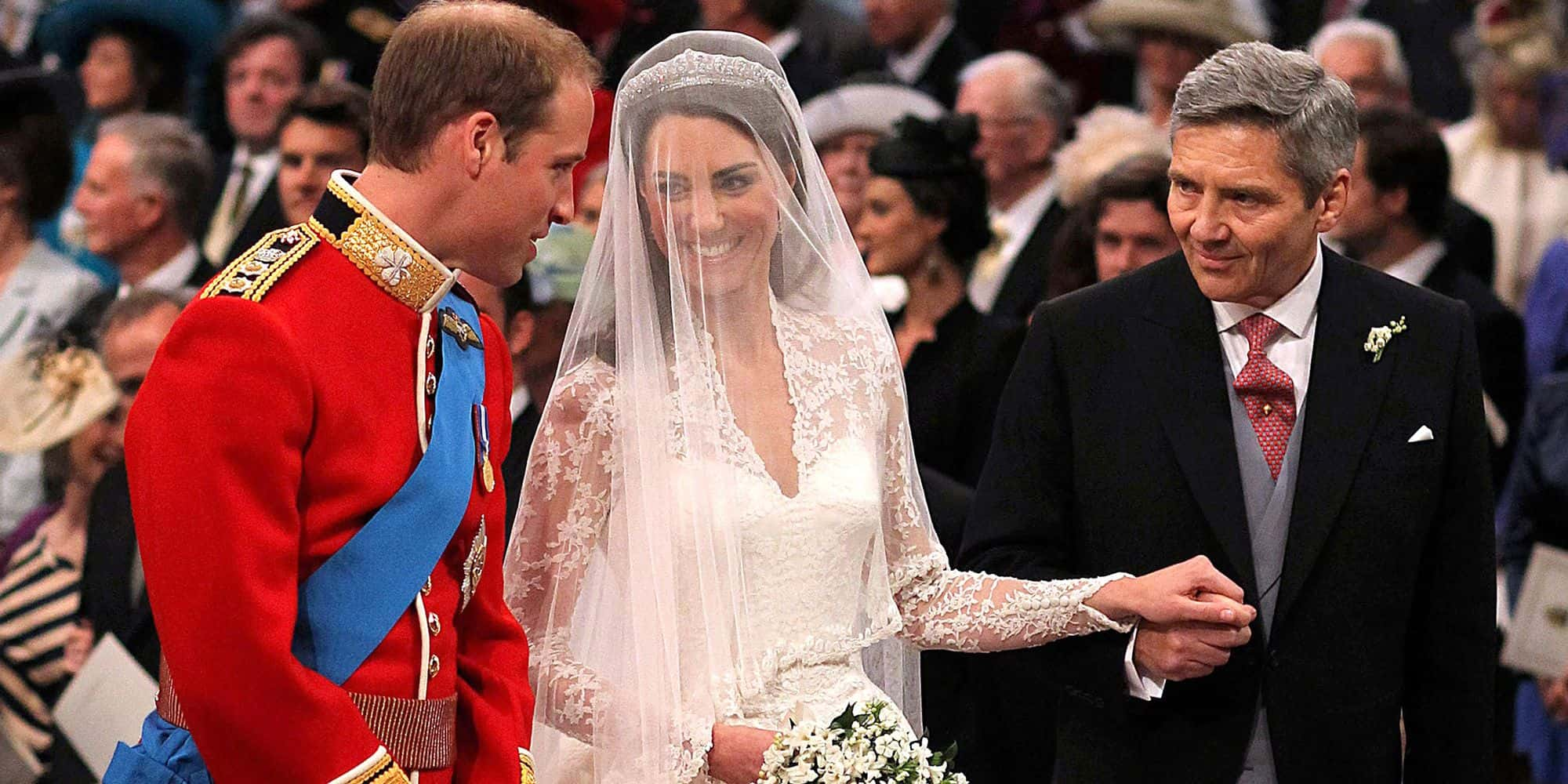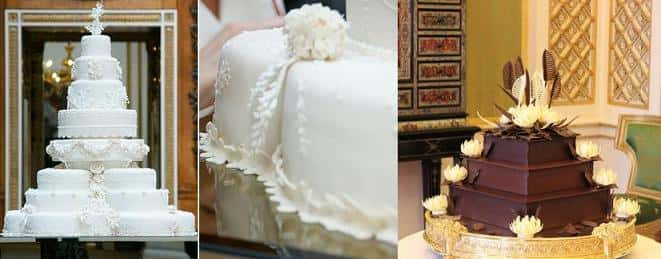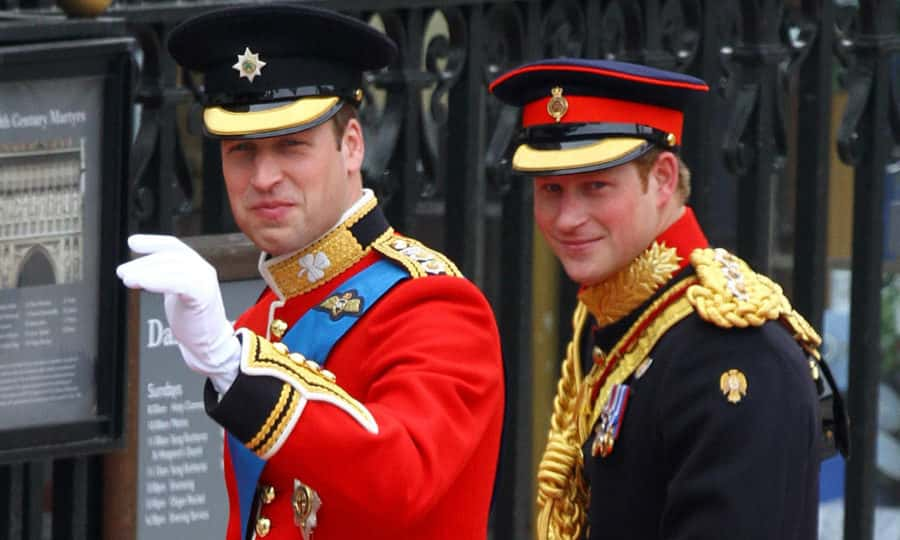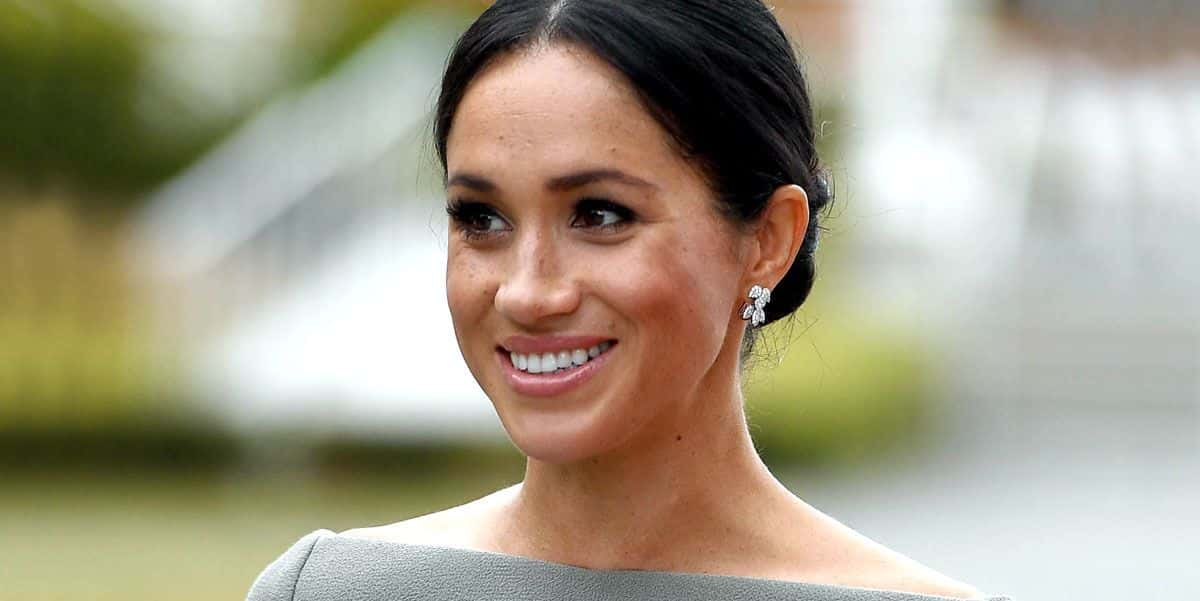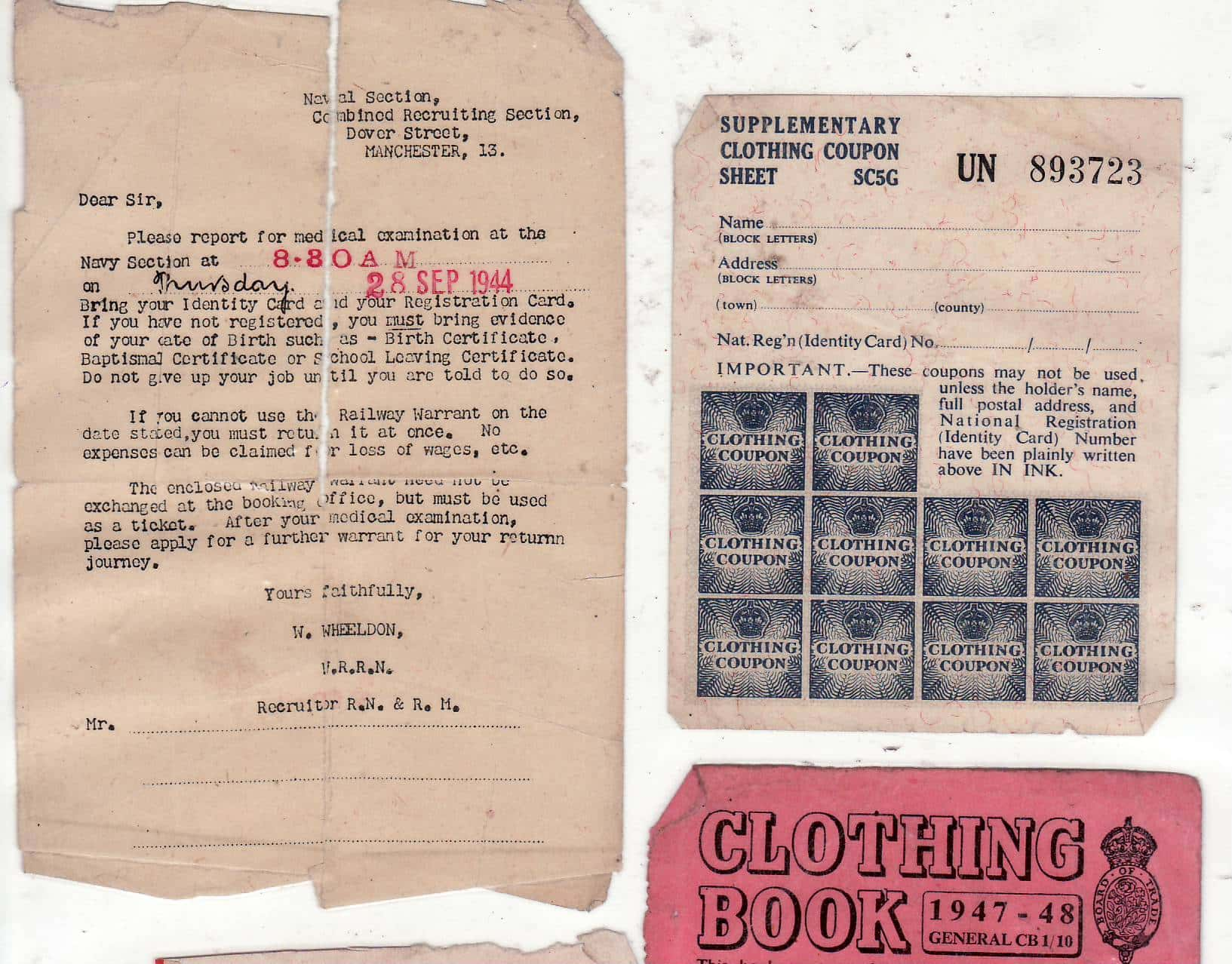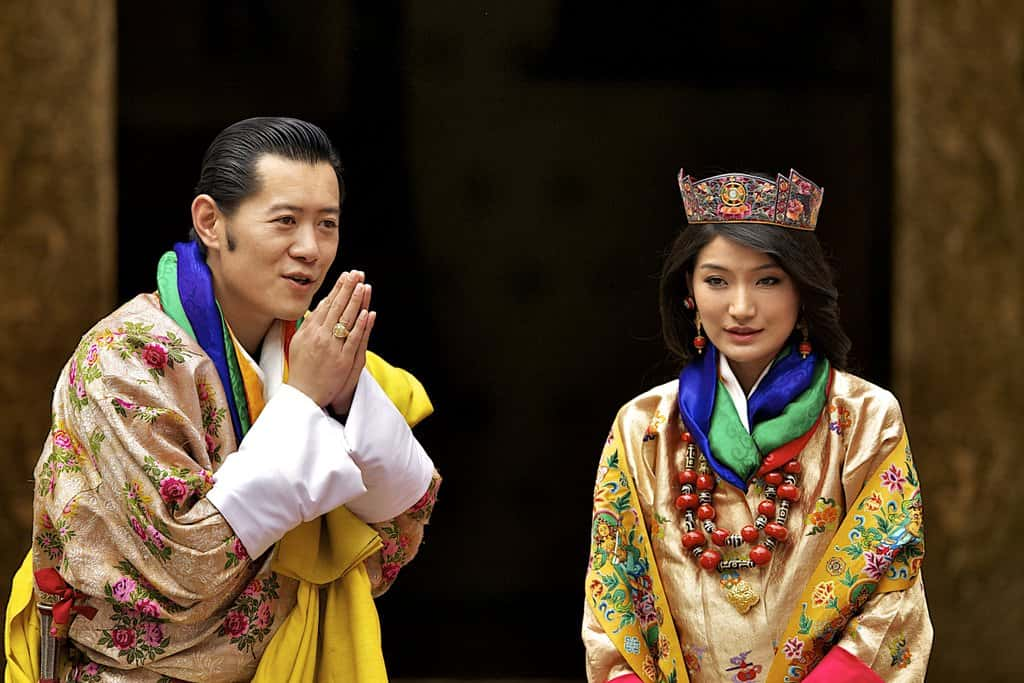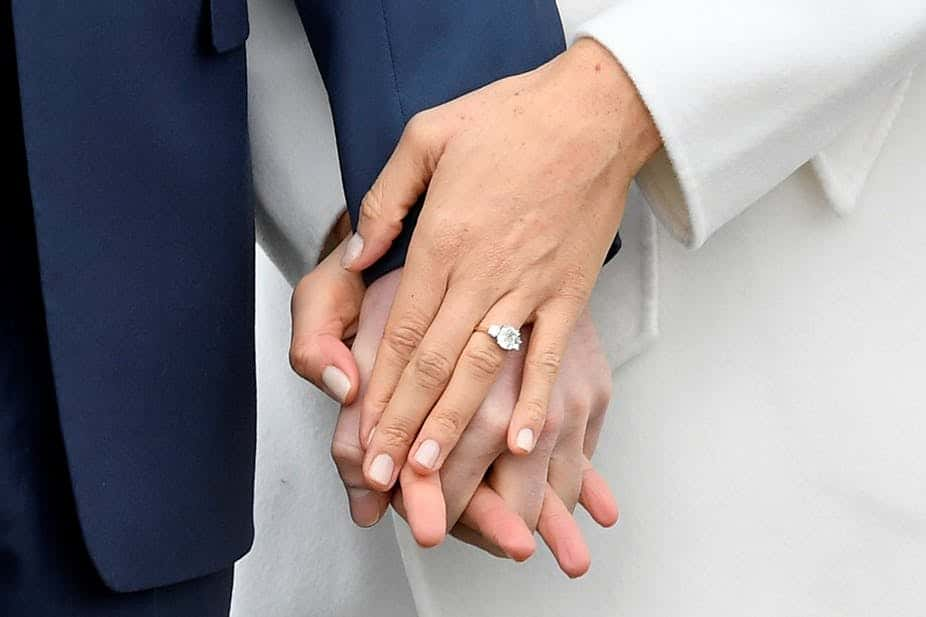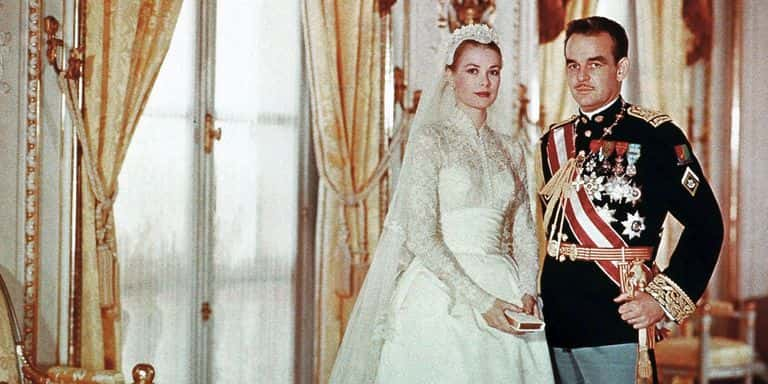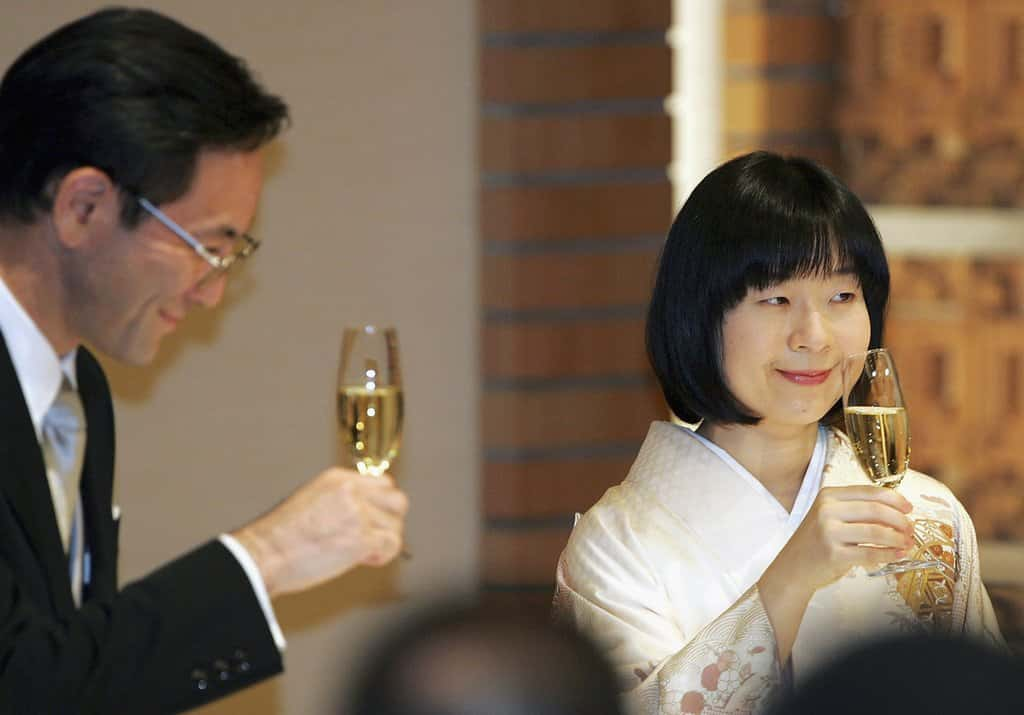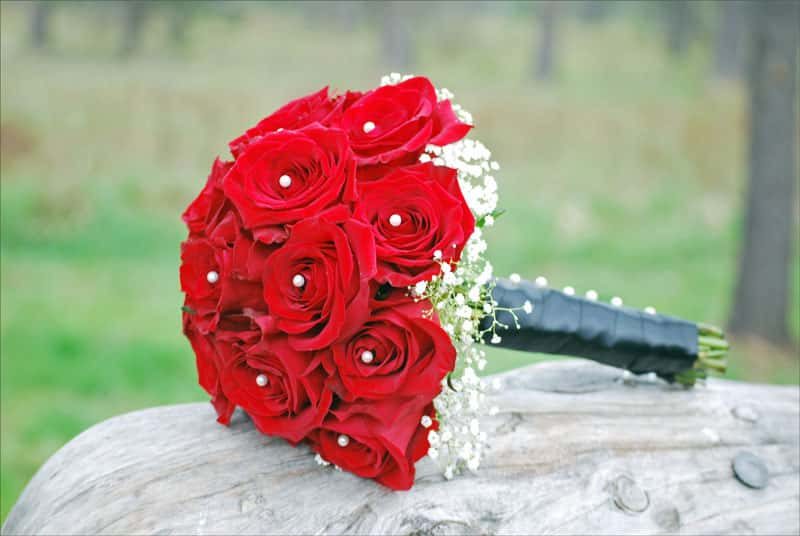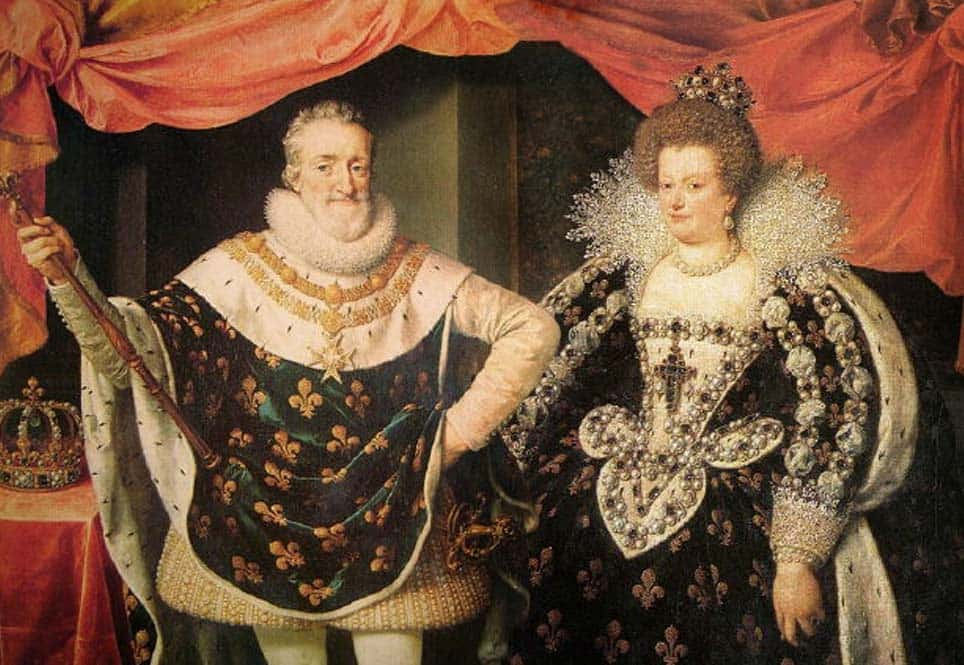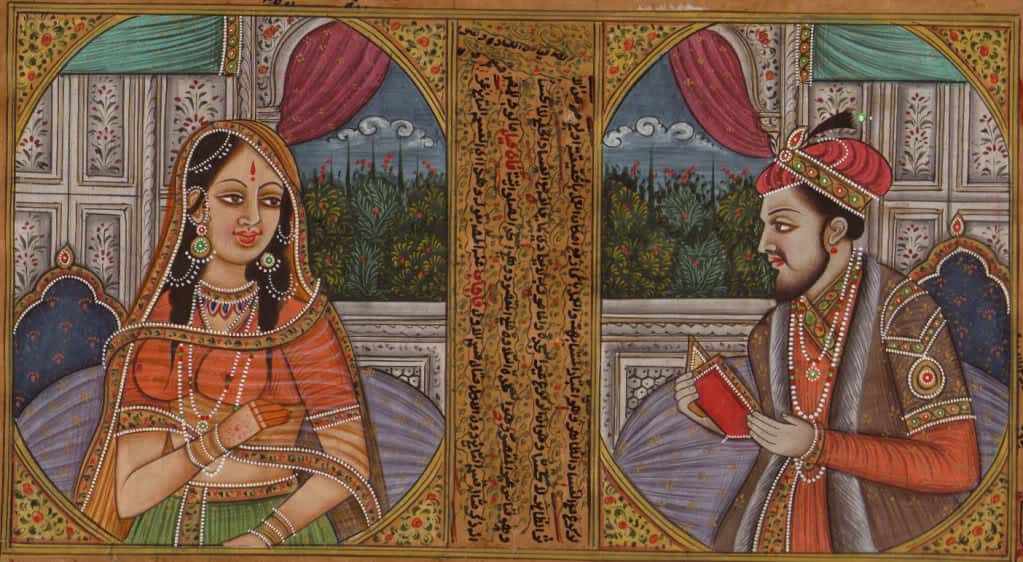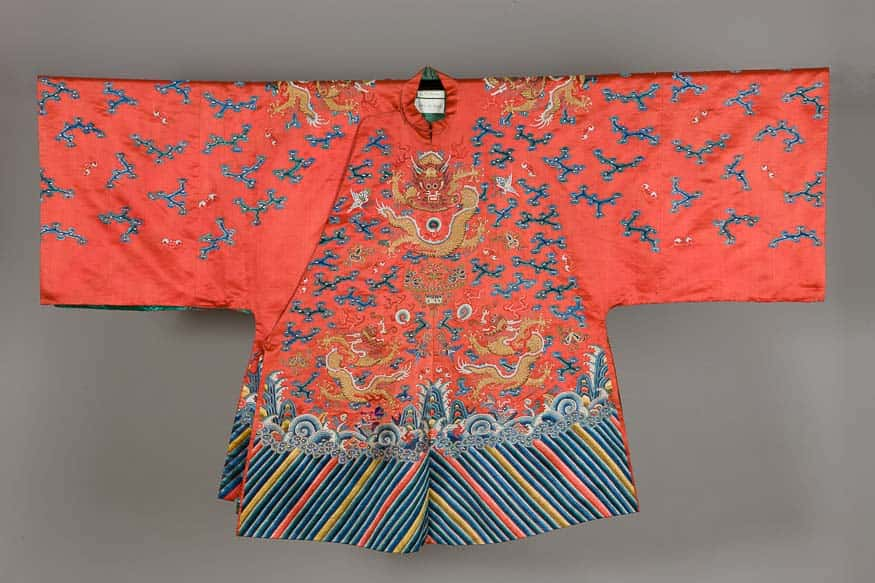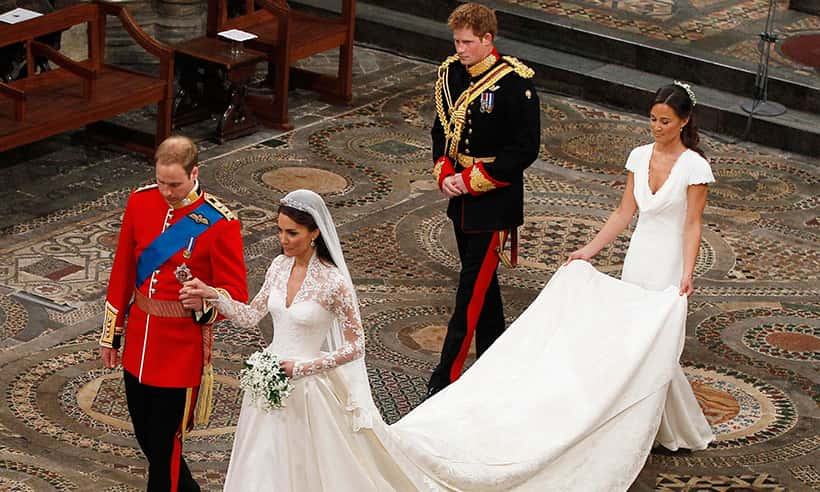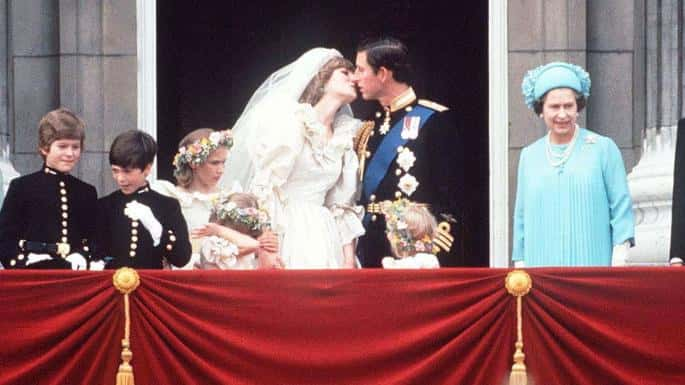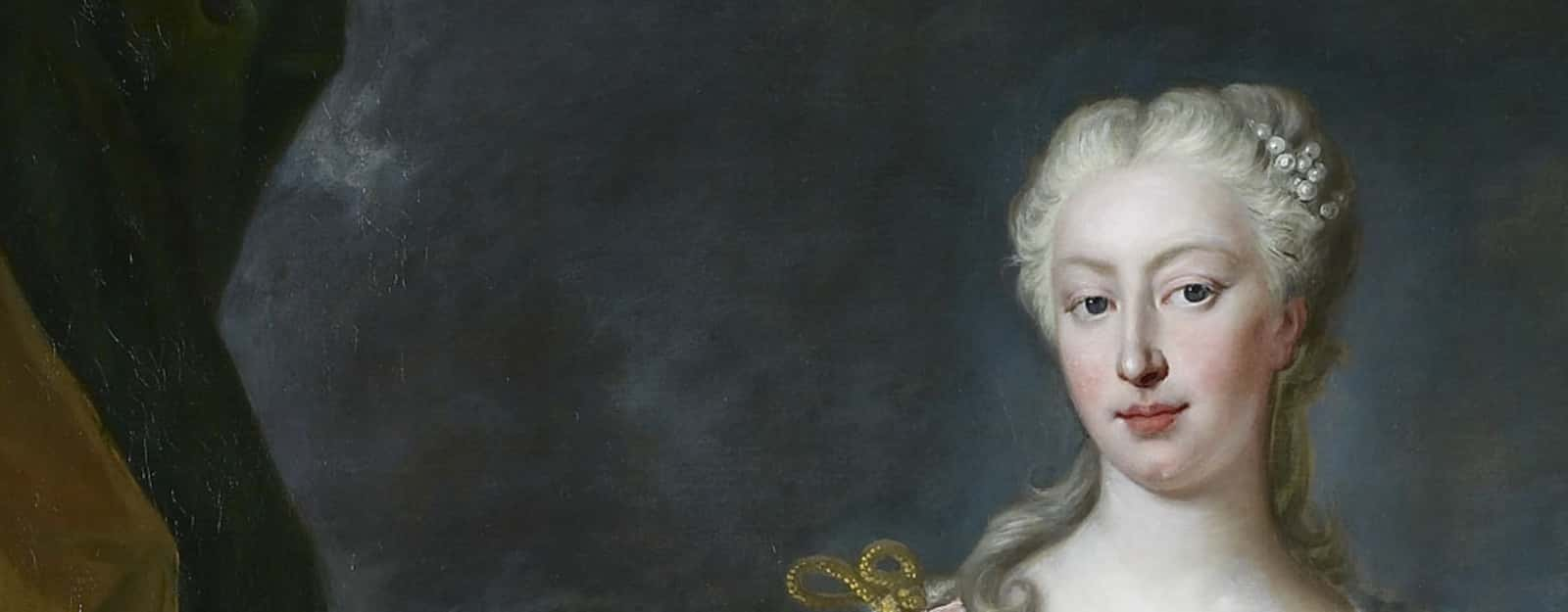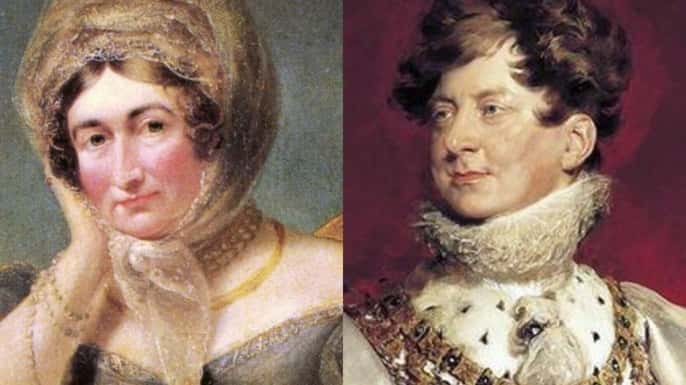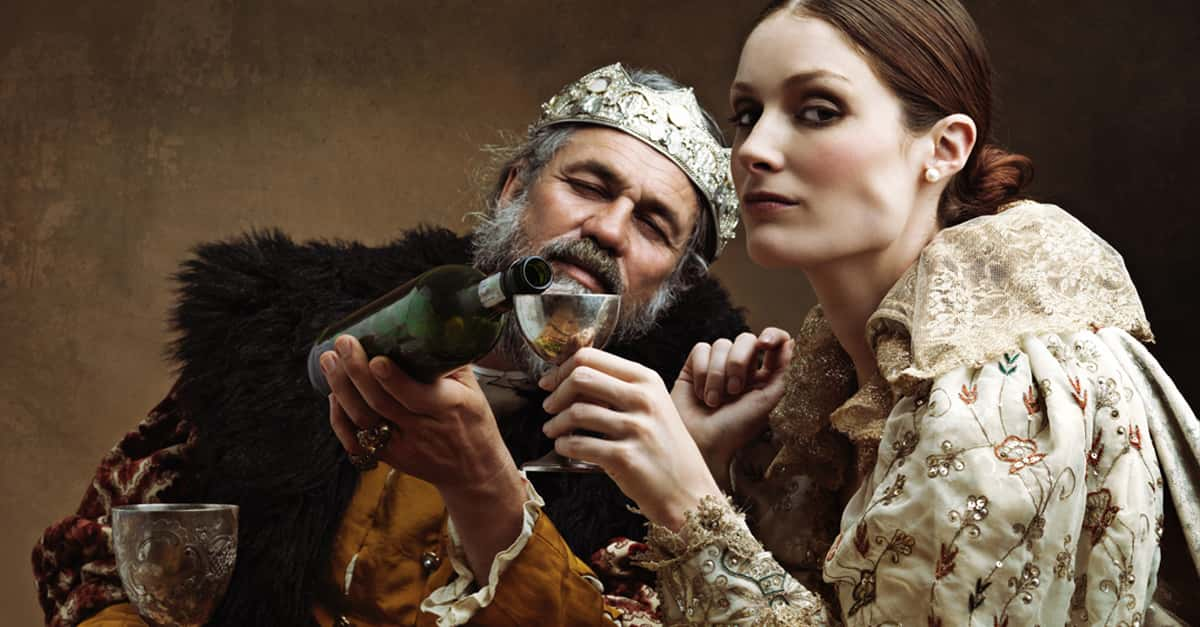“People used to respect royalty to an insane extent that doesn't exist nowadays. These people never shouted. They never moved, really. Their effort was minimum. They were the most powerful people, but they were just calm.” –Sofia Boutella
Royal weddings: can anything else draw such massive yet equal amounts of awe and ire from the “common” people? These days, displays of aristocratic pomp seem like a throwback to a bygone age, where the divine right of kings was taken for granted, and such unions were truly a matter of international policy. Now that the monarchy is (mostly) ceremonial, the “pomp” is all that is ostensibly left. While audiences from all over the world seem to enjoy tuning in to rich strangers tying the knot, others will protest that tax dollars could be better used elsewhere. But even before (most of) the world’s monarchies became ceremonial, there were plenty of mixed feelings flying around at every royal wedding.
From expensive veils to royal vomit, the history of aristocratic weddings has been decadent and sometimes deadly. Polish that ring to 42 shocking facts about royal weddings.
Royal Weddings Facts
42. White Out
Queen Victoria’s 1840 wedding to Prince Albert pioneered white as the wedding color, at least among the wealthy. Beforehand, wedding dresses came in many colors. But her Majesty made the peculiar choice to show up in a white and heavy silk gown. Soon, white became the well-to-do bride’s emblem for purity and innocence—the choice aesthetic for brides of the Victorian age and beyond.
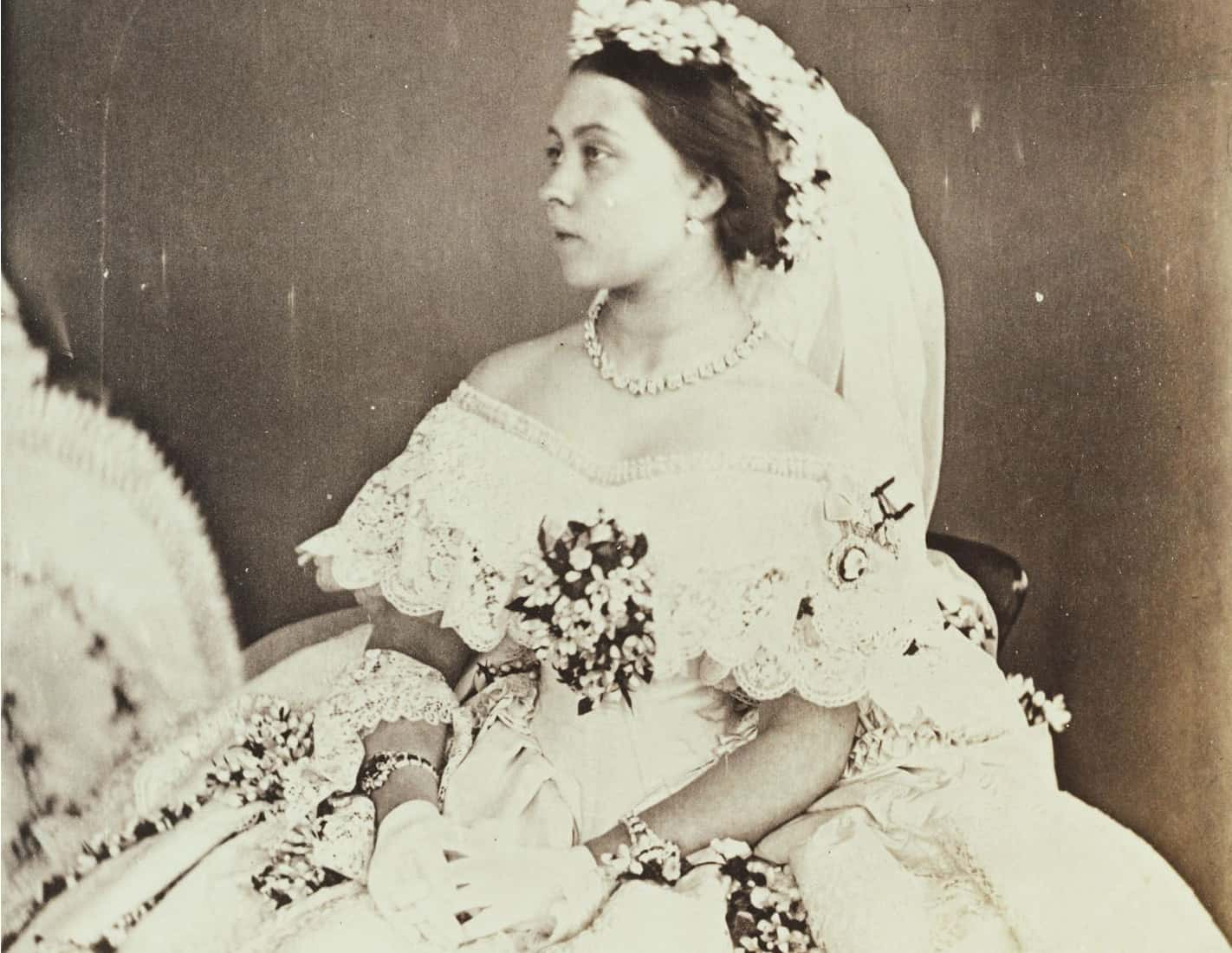 Pinterest
Pinterest
41. Big Sugar
Queen Victoria and Prince Albert of England’s wedding also introduced the traditional “wedding cake.” Featuring the soon-to-be classic bride and groom on top, the dessert weighed almost 300 pounds and had a three-yard long circumference. Upholding the new trend of “white weddings,” the cake was coated in pure white sugar. Enjoy the cavities!
40. Royal Radio Waves
The royal wedding as a big broadcast event is not specific to the advent of television. When Queen Elizabeth II of England, then just Princess Elizabeth, got married in 1947, the ceremony drew a radio audience of 200 million listeners.
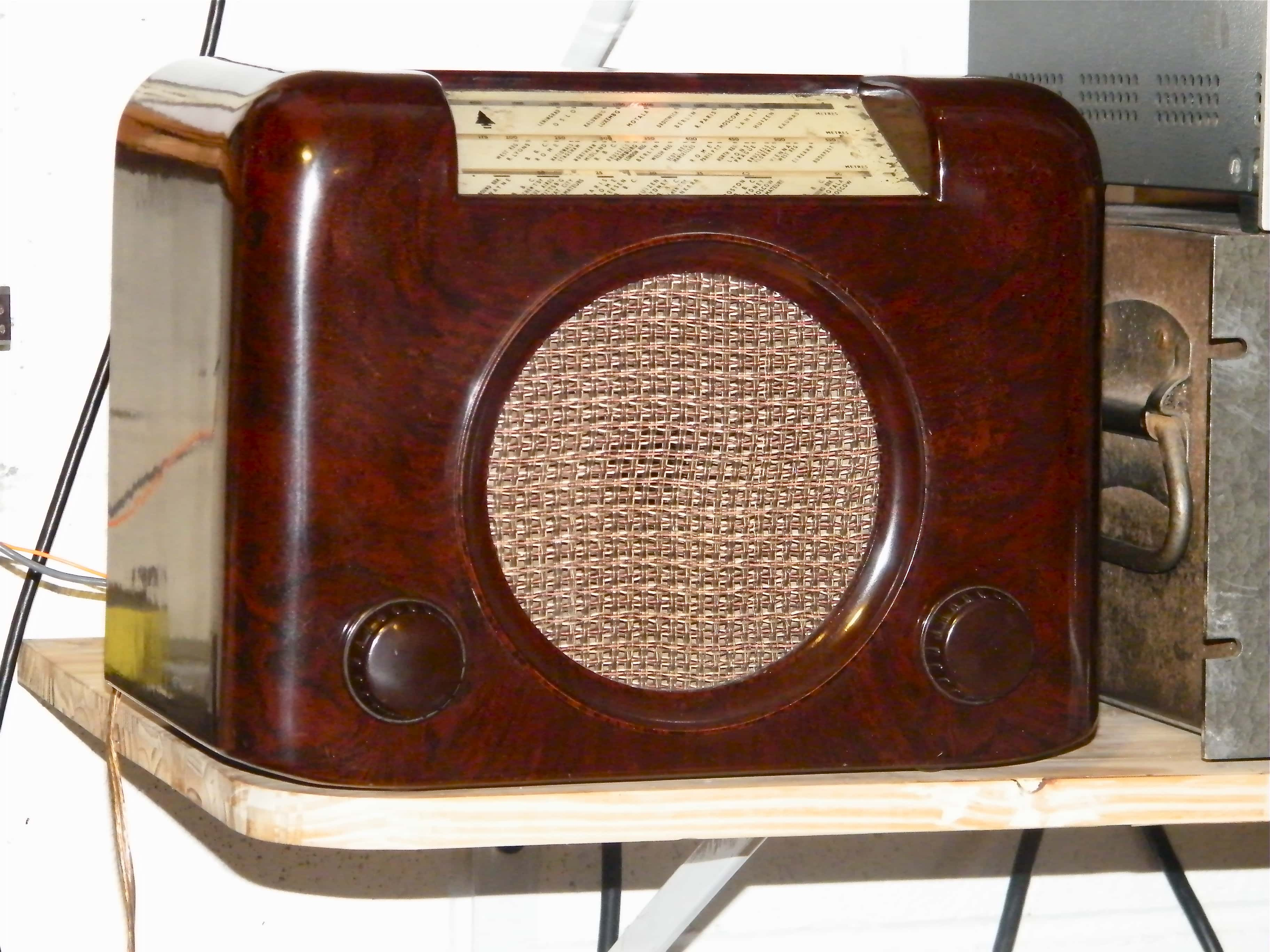 Richard Sears, Vintage Electronics - WordPress
Richard Sears, Vintage Electronics - WordPress
39. Snap, Crackle, Shop
It’s a princess-bride’s nightmare: on literally the day she was to be wed, Elizabeth II’s bridal tiara snapped! It was such an “emergency” that a police escort accompanied the royal jeweler to his workroom to have it fixed before the bride left for the aisle. #Priorities, am I right?
38. You’re on Candid Camera
The first ever British royal wedding to be broadcast on TV was the 1960 union between Elizabeth II’s sister, Princess Margaret, and Antony-Armstrong Jones, a photographer who would be anointed Lord Snowdon. The BBC had the honor of transmitting the vows to 300 million viewers.
37. That’s a Lot of Eyeballs
Over 750 million television viewers watched Lady Diana Spencer marry Charles, Prince of Wales, on July 29, 1981. In terms of in-the-flesh attendees, the wedding hosted 3,500 guests.
36. Scrap and Swap
Princess Diana Spencer’s dress was a state secret. The designers of the dress, Elizabeth and David Emanuel, concocted an elaborate decoy plan to keep the real thing under wraps. Every night, they would throw out “decoy” bits of white fabric from their studio in order to throw off the press.
35. The Never-ending Accessory
At 25-feet long, Princess Diana’s bridal train is the longest train ever worn by a royal bride.
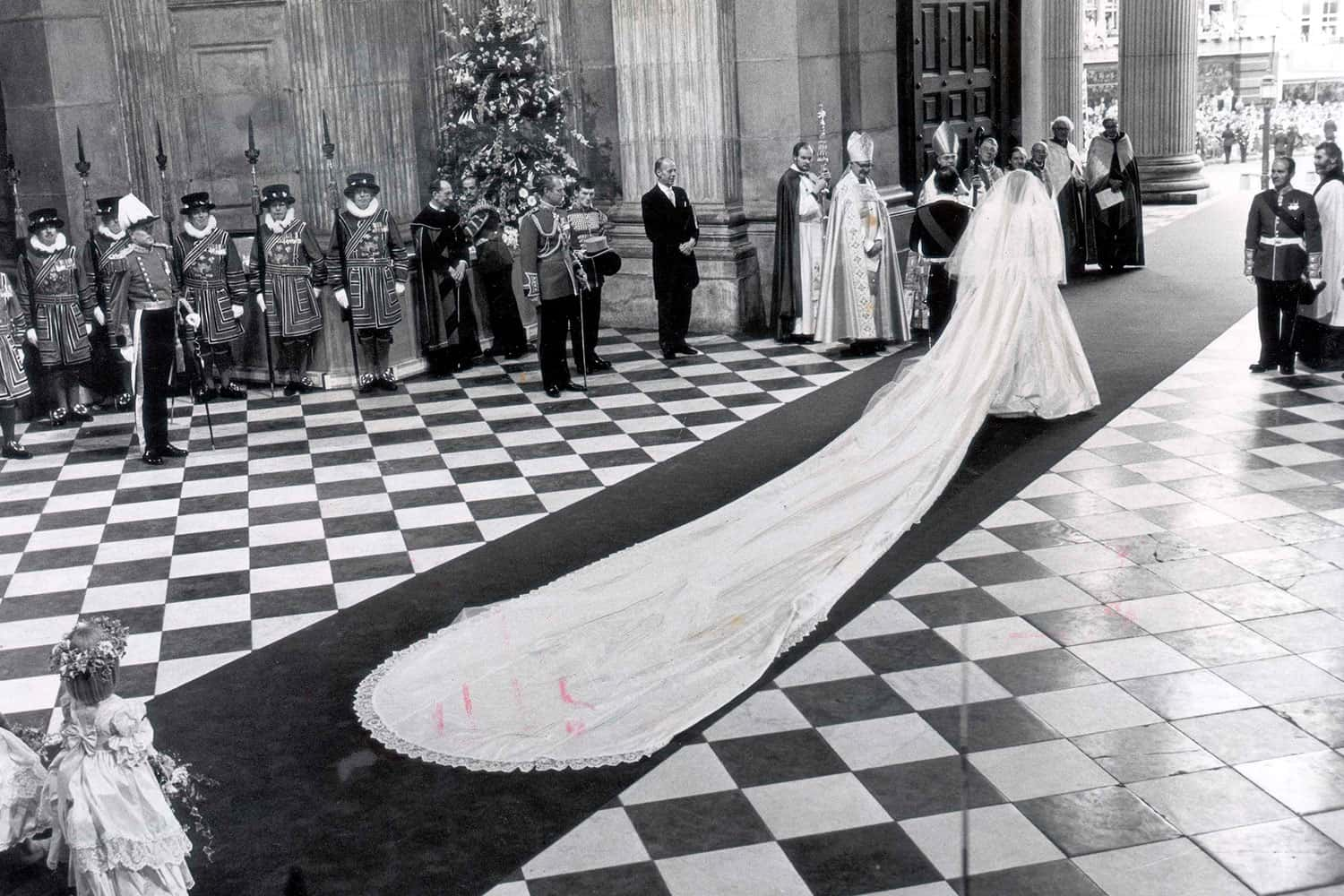 dir.md
dir.md
34. Not Bound to Serve
Princess Diana of Wales was the first British royal bride to omit the “obey” part of the traditional bridal vows to her husband, taken from The Common Book of Prayer. Years later, her daughter-in-law, Kate Middleton, would do the same. As did Diana’s second daughter-in-law, Meghan Markle. Can we blame them?
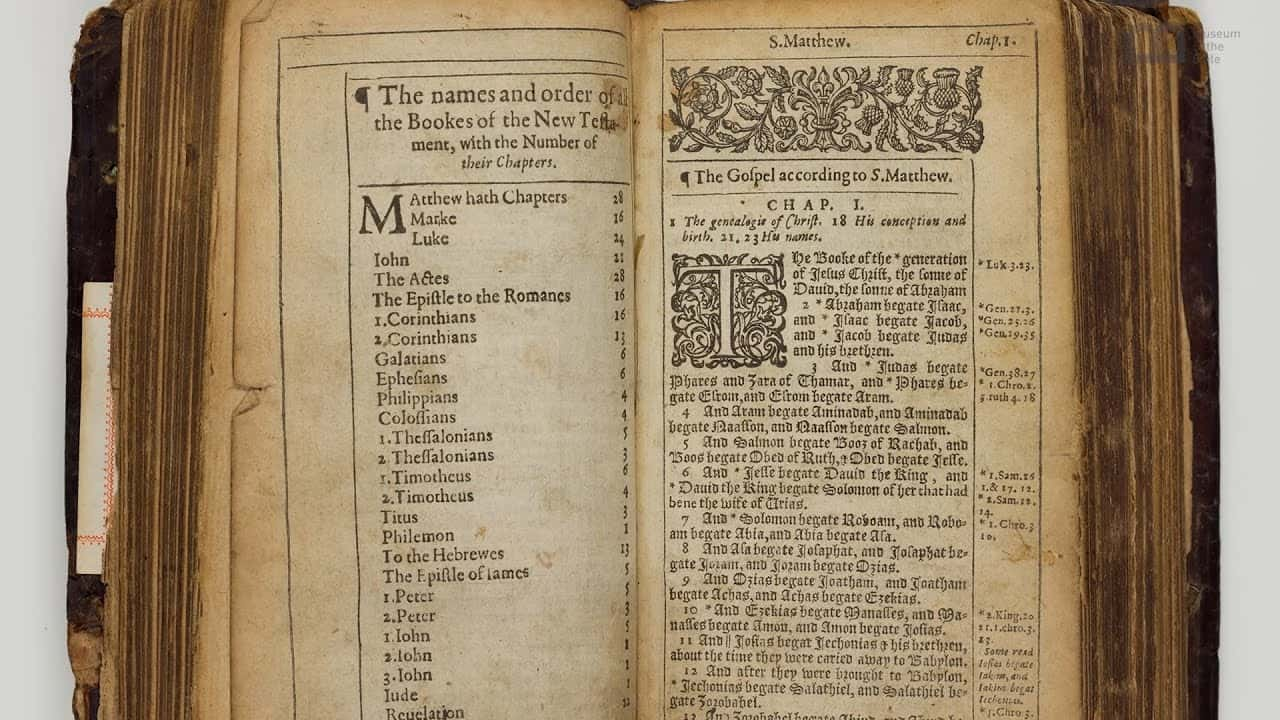 YouTube
YouTube
33. You May Now Exchange Apologies
No matter one’s station in life, second marriages are subjects of controversy. This was certainly true for Prince Charles and his second wife, Camilla Parker Bowles. While he had been still been married to Princess Diana, the pair had begun an affair, but by the time of their marriage, it had been public knowledge for years. Thus, when the two finally married in 2005, they still had to make a formal acknowledgment of their “manifold sins and wickedness” at Windsor Castle. More specifically, they had to confess in front of the entire congregation at St. George’s Chapel. That can’t have been fun.
32. Splitting the Cheque
Prince William and Kate Middleton’s wedding cost a reported $34 million. However, a whopping $32 million went towards security. The government gave police a $4.8 million grant to supply overtime officers for the event. In comparison, the bride’s dress “only” cost $434,000, but that was paid for by the bride’s family. So, what did they pay for themselves?
31. Great British Bake Off
Because rich people never have to settle for one of anything, Prince William had two wedding cakes at his nuptials. First, they had the “traditional” wedding cake: a fruitcake covered in white fondant icing. Not exactly appetizing. Maybe we can’t blame him for also ordering a “groom’s cake” made of frozen chocolate biscuits. We can, however, get a little miffed that these cakes cost a combined $80,000.
30. Don’t Sweat It
For Prince William and Kate’s wedding, both William and Prince Harry wore traditional military gear. To keep the royal bodies high and dry, their uniforms were built with custom-made sweat guards that could withstand the hot lights of televised marriage.
29. Flirty Over 30
Meghan Markle is the oldest royal bride in British history. At the time of her wedding, she was 36 years old.
28. A Girls Walks Alone A Day
For her 2018 wedding to Prince Harry, Meghan Markle became the first ever royal bride to begin her wedding walk by herself without any male escort. Only when she reached the Quire did Markle accept Prince Charles, Harry’s father, as her escort for the rest of her march.
27. Touchdown!
In 2000, King Letsie III became the first ever King of Lesotho to marry a commoner. The bride was the South African Karabo Motsoeneng and the couple was married inside of a sports stadium.
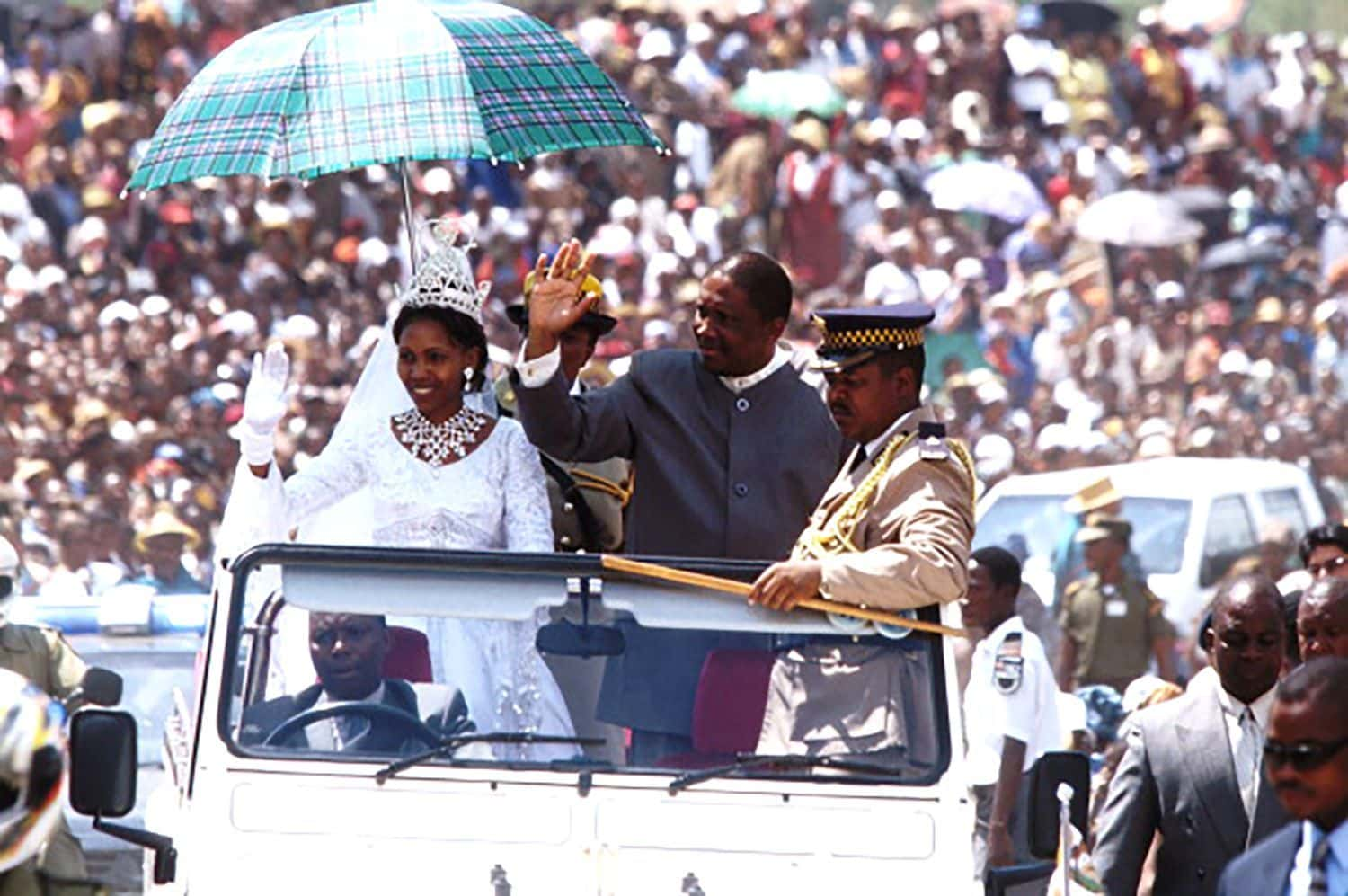 Pinterest
Pinterest
26. The Original Rose Ceremony
It turns out The Bachelor has some historical precedence. Some. You see, from the 16th to 17th centuries, the Tsars of Muscovy (the future Russia) would choose their wives from a “bridal show.” Here, eligible ladies were rounded up, displayed, inspected, and eventually one would be chosen to be the lucky lady. This process—which totally doesn’t resemble cattle farming—was partly to give a pretense of “unbiased” opinion, as no one noble family would look overly favored…even if everyone knew the “winner” going in.
25. Coupon Wars
In the aftermath of World War II, the people of Britain were still buying cloth with ration coupons. As a result, the future Elizabeth II of England’s bridal dress was completely paid for by these handy slips. When the common people found out their beloved princess would be buying her own wedding gown with coupons, they sent in their own papers. The Crown politely sent all these coupons back, saying it was illegal to use someone else’s ration slips. Before you shed a tear for the girl who would be Queen, you should know the government had donated an extra 200 clothing coupons beforehand to Elizabeth. Even in times of ration, a royal bride will not go without.
24. Worth the Wait?
It took three years to make the 2011 kira worn by Jetsun Puma at her wedding to Bhutan’s King Jigme Khesa.
23. Going for the Gold
Wedding rings of all present (and future) kings and queens of England are made from a rare Welsh gold that hails from the Clogau St. David’s mine. This a “new” tradition, going back only as far as 1923.
22. Lights, Camera, Exit Clauses!
Grace Kelly’s life seems like the American fairytale. In reality, the move from Hollywood actress to Princess of Monaco came with contract disputes to settle. When Kelly wanted to leave her acting career behind to be royalty, she had three years left on her contract with MGM studios. The studio eventually agreed to release Kelly—but only if (1) she gifted them her wedding dress from the sure-to-be iconic ceremony and (2) the couple would let their wedding be filmed as an exclusive documentary film and live TV broadcast. Seeing as their wedding would be an MGM production, the studio sent over professionals to make sure her real-life vows had Hollywood lighting.
21. The Right to Wife
On one hand, female members of Japan’s Imperial family will lose their royal status (and allowance) if they marry commoners. This happened to Princess Nori in 2005, when she left behind the aristocratic life to marry a government official. While Nori, who now goes by Mrs. Sayako Kuroda, lost her title, she gained the right to pay taxes and actually vote in her country’s elections. Oh, and she gained a husband too. I guess that’s also cool.
20. Save Your Bouquet
Lady Elizabeth Bowes-Lyon began the royal bride tradition of laying down one’s bouquet upon the Tomb of the Unknown Soldier. The day after the wedding, the bride is to save her wedding flowers to put them down on the grave. Bowes-Lyon started this tradition in honor of her brother, Fergus, who died in World War I. They were never able to find his burial site in France.
19. Sweet on the Stunt Double
When Henri IV of France wed Maria de Medici in 1600, he could not actually be there. Instead, the king sent a life-sized sculpture of himself made entirely of sugar. If you’ve read anything about their marriage, it was arguably the sweetest gesture Henri ever made to Maria.
18. The More the Marry-er
If you find yourself as a peasant in 17th century India (it happens), try to align your wedding to be around the same time as a royal wedding. It could save you money. As per Indian tradition, a key part of arranging a royal wedding is arranging the weddings of your poorer subjects. It was considered as part of the royal duty to look after one’s subjects. Mughal Empress Nur Jahan is said to have arranged the nuptials of over 500 orphans in her 17th-century reign.
17. Legislate This Look
In 1888, the Chinese Qing dynasty mandated that an upcoming royal wedding would kick off a full 20 days where no crime would be persecuted. Before they could cheer, “Woo! Purge!” they learned all citizens were legally required to wear “auspicious” colors of red and green on the actual wedding day itself. Hard to get in the lawless mood when you have a dress code.
16. Bros Before Codes
Royal British weddings don’t have official “Best Men.” In fact, Prince William broke royal protocol when he had his brother Harry act as best man for his 2011 wedding. In theory, the men at a groom’s side are called the “official supporters.” The supporters serve a very similar function to the best man, except fancy.
15. The Littlest Bridesmaids and You
Royal British brides are rarely accompanied by adult bridesmaids. Instead, children assist the wife-to-be on her big day. After all, you can’t have a wild and debauched bachelorette party if the people who are supposed to plan it are all under the age of eight.
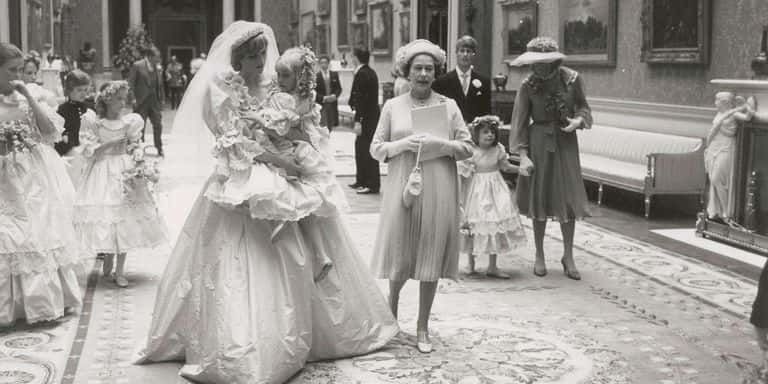 Harper
Harper
14. Put Away the Royal Lips
The Church of England is not fond of that “You may now kiss the bride” part of a wedding. In fact, the Church outright forbids kissing in sacred places, such as Windsor Castle or Westminster Abbey. Hence, the balcony kiss is a pretty momentous moment for any royal couple.
13. Costume Drama
Henry VIII of England knows a thing or two (or six) about royal weddings. One of his more bumbling adventures happened with Anne of Cleves, his fourth wife. By 1540, Henry was in his 50s and already in his “big, sick, and mean” phase. Anne was 24 years old. The promise of a pretty foreign bride lifted Henry’s spirits; he thought to “surprise” Anne for their first meeting. While Anne was watching bull-baiting from the window, Henry wore a cloak and pounced his new bride with hugs and kisses. Having no idea who this strange guy was, Anne did not take it well. Henry himself was disappointed in Anne’s looks—but many suggest that Anne’s reaction to Henry as a gross old man, and not a king, cooled his opinion on Anne before he really looked at her. Their marriage was annulled in half a year.
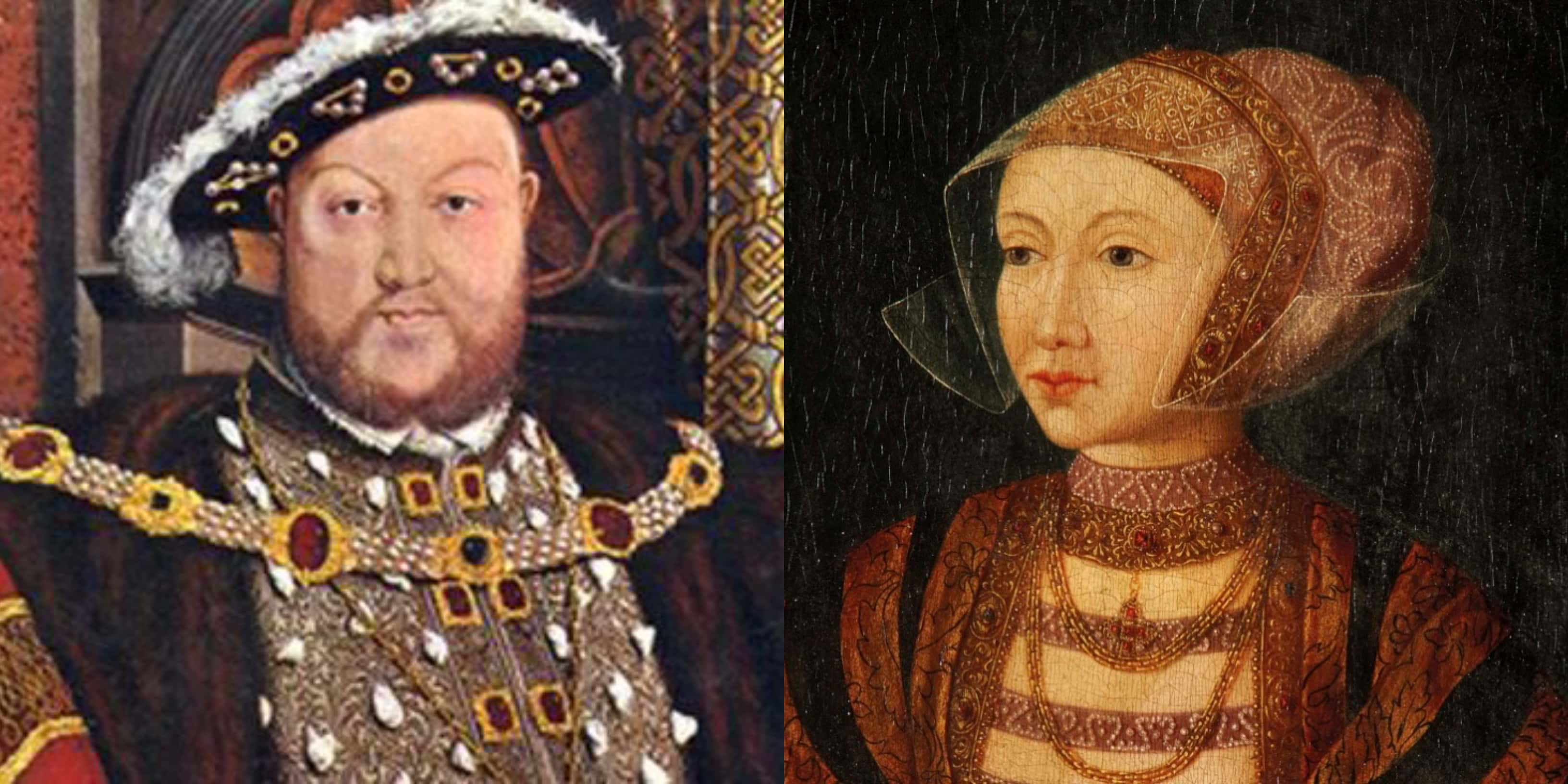
12. Rumble in the Chapel
Religious tension spoiled Henry de Bourbon and Princess Marguerite of France’s wedding in 1572. First, Henri had to stand outside his own wedding, since he was a Protestant while the bride was a Catholic. Also, the St. Bartholomew’s Day Massacre happened just six days later, sending a wave of anti-Huguenot violence throughout the country. Henry only survived because of his wife’s influence and his promise to convert to Catholicism. It was a rough start and a rough end, as the couple had the marriage annulled in 1599. On the bright side, they made it “work” for 27 years?
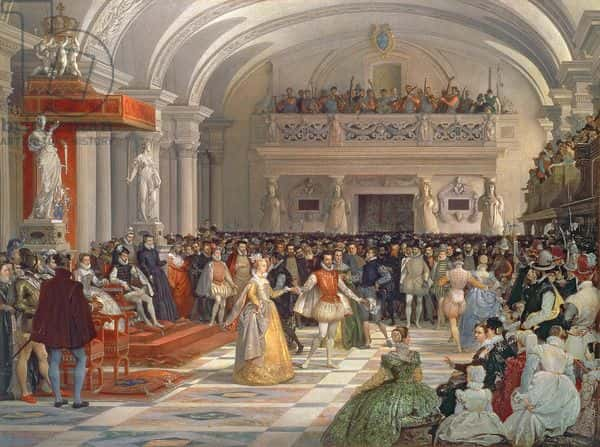 Pinterest
Pinterest
11. Royally Retching
Imagine not meeting your bride before you say your vows. That was the reality for many early-modern royal couples. That the bride should look at you and then immediately vomit down her dress—and onto your mom? That was less expected. Unfortunately, this is exactly what happened to poor Augusta of Saxe-Gotha in 1736. She arrived in London to marry George II’s oldest son, Frederick. Despite the digestive faux-pas, the two went on to have a happy and fertile marriage with nine kids. At least she was well prepared for the morning sickness.
10. Acrimonious Anniversary
Prince Harry and Meghan Markle were married on May 19, 2018, which happens to be the 482nd anniversary of when Henry VIII of England executed his second wife, Anne Boleyn, for adultery and treason in 1536. Was that the only weekend available?
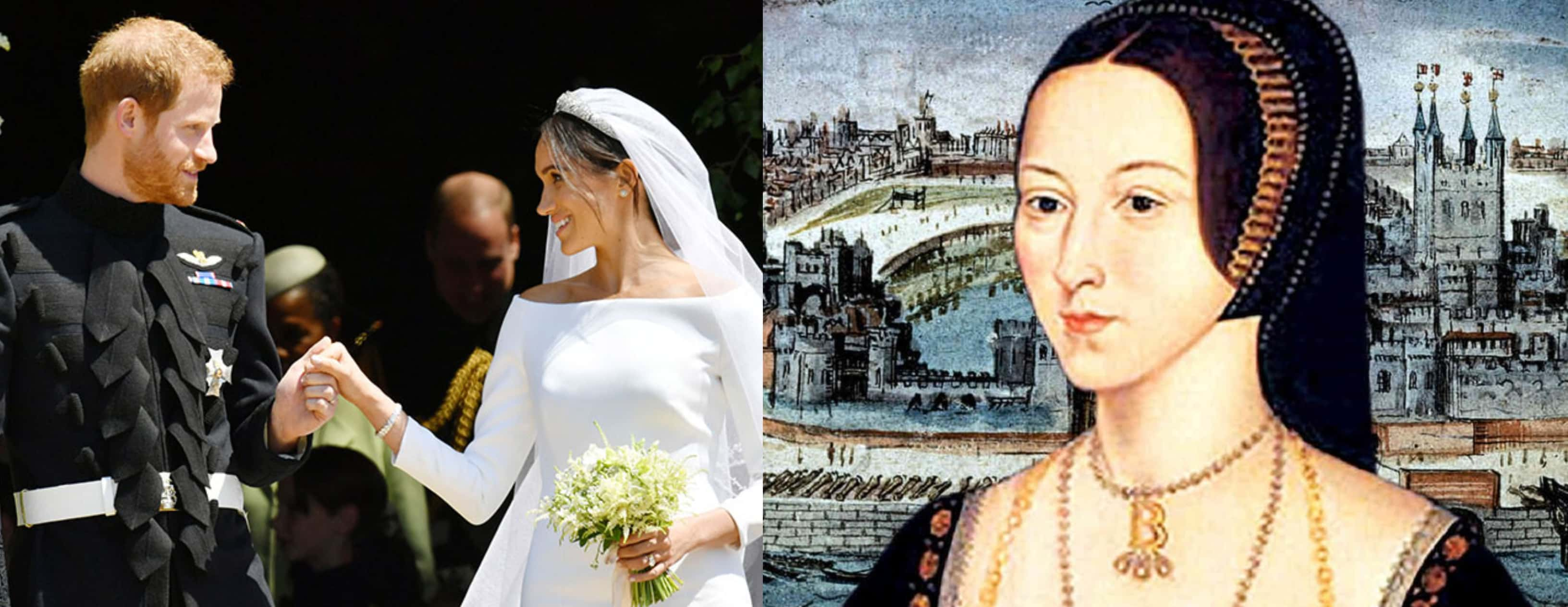
9. Taking Their Time
Marie Antoinette began her marriage to Prince Louis of France—the future Louis XVI—by accidentally blotting out half her name on the marriage contract. It was an ill-omen that perhaps affected the honeymoon performance. Louis and Marie shared a bed, but they would not be able to consummate their marriage for seven whole years.
8. Head Over Heels
In 1795, Britain saw a royal wedding that started at the bottom and ended with bottoms up. Prince George Frederick Augustus (the future George IV of England) was apparently so disappointed in his bride’s looks that he demanded a glass of brandy upon looking at her for the first time. Not to be outdone, the bride—Caroline of Brunswick—lamented he was nowhere near as hot as his portrait. Things did not look up at on the big day: the groom arrived positively drunk and actually refused to say his vows; George cried openly at the ceremony. It took his father’s threats to force him to behave. Not to reach his peak at the altar, George spent his wedding night passed out on the floor. How princely.
7. Gotta Go Fast
Puyi was China’s last emperor, but he was also a groom who royally cut-and-ran from his honeymoon. Apparently overwhelmed by the night’s celebrations, he took one look at the wedding bed, was struck with terror, and then promptly ran away. Puyi came back, eventually, but since the couple never had an heir, historians believe he never consummated the match.
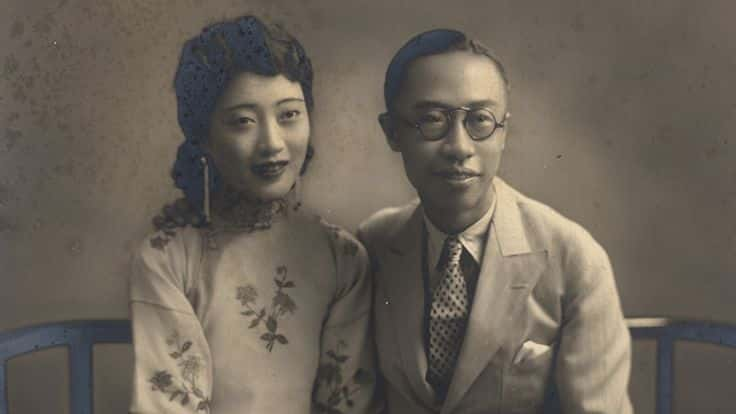 Pinterest
Pinterest
6. Give Me the Metrics
File this under the royal weddings that could have been. In 1502, the widowed Henry VII of England took an interest in Giovanna of Aragon. Before they could hash out a marriage deal, he did his due diligence and asked for first-person information of her breast size, breath smell, drinking tastes, and the amount of hair on her lips. Understandably, Giovanna declined a request for a portrait and Henry VII remained singled until he died.
5. Prince of Persistence
George VI proposed a total of three times to Elizabeth Bowes-Lyon before she said yes.
 Pinterest
Pinterest
4. Will Party for Food
The 1468 marriage of Charles, Duke of Burgundy to Margaret of York created a labor shortage. The momentous alliance to Edward IV of England’s sister was supposed to be celebrated with 12 full days of jousting and general merrymaking. However, there were just not enough workers to support this huge party, so the Bruges government had to import workers from laboring cities to fill the gap. Why be rich if you can’t be a hassle to the common folk?
3. Snubbed with a Smooch
Instead of kissing his bride, Edward II of England sealed his wedding vows with a kiss to his lover, Piers Gaveston.
2. A Most Wicked Honeymoon
James VI of Scotland spent his 1589 honeymoon hunting witches. Fixated on the idea that witches were out to get him, James accused a bunch of women specifically of hexing the union between him and his bride, Anne of Denmark. Some say James personally tortured witches to get a confession. We’re glad his descendants did not adopt this as a royal post-nuptial tradition.
 Pinterest
Pinterest
1. When Til Death Comes Too Fast
In 1024, King Harthacnut of Denmark and England died in the middle of giving a wedding toast. His majesty suddenly dropped dead of natural causes—though some suspected poison from his successor, Edward the Confessor. He most likely died from a stroke brought on by excessive alcohol consumption at the wedding. Ironically, Harthacnut was in the middle of toasting the health of the bride.
Sources: 1, 2, 3, 4, 5, 6, 7, 8, 9, 10, 11, 12, 13, 14, 15, 16, 17


